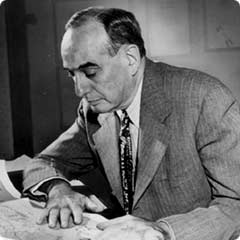 The Money Solution BETA(at least for government, but maybe it will help you to
The Money Solution BETA(at least for government, but maybe it will help you too)
Some interesting discussion over at Bacon's Rebellion got me thinking about a couple of new ideas, and I felt like reprinting my comments here.
(In response to criticism of the concept of infrastructure that pays for itself, instead of being subsidized by people who do not benefit from it equally or at all)
Is self-funding infrastructure possible? Absolutely, we're doing it every day. When government builds infrastructure, two kinds of benefits are created with two different revenue streams. The first is the actual service of the infrastructure, like better schools or fast transit. We can put a user fee on that and get some revenue, but collecting it is often expensive and with deadweight loss can actively erode the benefits sought by the project in the first place. Still, user fees like congestion pricing can create enormous value by regulating supply and demand for services, creating a double benefit.
The second source of value created by infrastructure is improved productivity of nearby land. A piece of farmland is a much better place to live after the school and transit station go up next door. That land becomes much more valuable, regardless of whether the owner or lessees actually use the services or not. We can put a user fee on that land and harness some of that increase in value. Just like other user fees, the land fee can create enormous value by regulating supply and demand for land, creating a double benefit. Affordable housing and a clear edge are part of that created value.
By putting smart fees on government services, we can pay our fair share for what we need, what we want, have some extra left over if we apply ROI, and don't need taxes, meaning no deadweight loss on consumption and employment.
How's that for self-funding infrastructure?"
I missed some points:
1. Government services can also create efficiencies. For example, free neighborhood medical care would encourage preventative treatment and catch illness early on, before health and economic risks grow. This creates efficiencies such as lower medical costs, fewer sick days, and longer lifespan. This is a critical part of why policies like brownfields redevelopment and energy efficiency make economic sense, by reducing costs.
Some programs, such as brownfields redevelopment, create all three types of value, by providing services (risk abatement), raising land value (safe land is more productive), and creating efficiencies (medical costs avoided). A Return on Investment (ROI) analysis can show the total benefit of a program like this or others, quantifying costs and projected revenue, allowing people to make the best decisions on what to do with their collective political power.
2. There is still room for Pigouvian tax ideas, where the cost of an activity is raised to meet its social cost. Carbon taxes and Virginia's recently enacted abuser fees for drivers are good examples. This strategy is an enormously effective use of police power to address market externalities, as well as a nice source of extra revenue, laying down a nice double benefit. There is not a triple benefit like government services offer, so ROI on these may be lower, but still excellent.
3. As citizens push government in this direction, revenues from services and Pigouvian taxes will replace all taxes and their deadweight costs on earnings and employment, jump starting the economy in a green direction. As efficiencies and productivity accelerate, revenues will outpace spending, creating the delightful problem of what to do with this largess. Alaska addressed this issue with its Permanent Fund. This is an investment fund fed by revenues from oil rights, a government service. The fund forms a cushion to help the state transition as the oil runs out, and in the meantime the interest is used to subsidize other government services and to share with the citizens of Alaska. Governments experiencing revenue beyond useful spending needs would do well with a similar approach, creating a cushion against risk and sharing with citizens.
4. As communities succeed in establishing truly green (profitable) governments, they will have to decide what to do with their individual surpluses. Personal investment (time with family, new businesses, education, stocks and bonds, capital acquisition) and cultural consumption (play, theater, music, film, television, other arts) will dominate over increased family size given high levels of female education (an excellent government service). In this way, the challenges of unsustainable population growth can be avoided, and we can have communities that, as architect Bill McDonough says, "love all children, of all species, for all time."
5. In case of absolute disaster, government can still (ick) put traditional taxes on consumption or (uck) even employment to meet its debt obligations. I note this only because it makes government debt enormously low risk compared with other investments.
Simple, right?
 Questioning King Coal
Questioning King Coal







